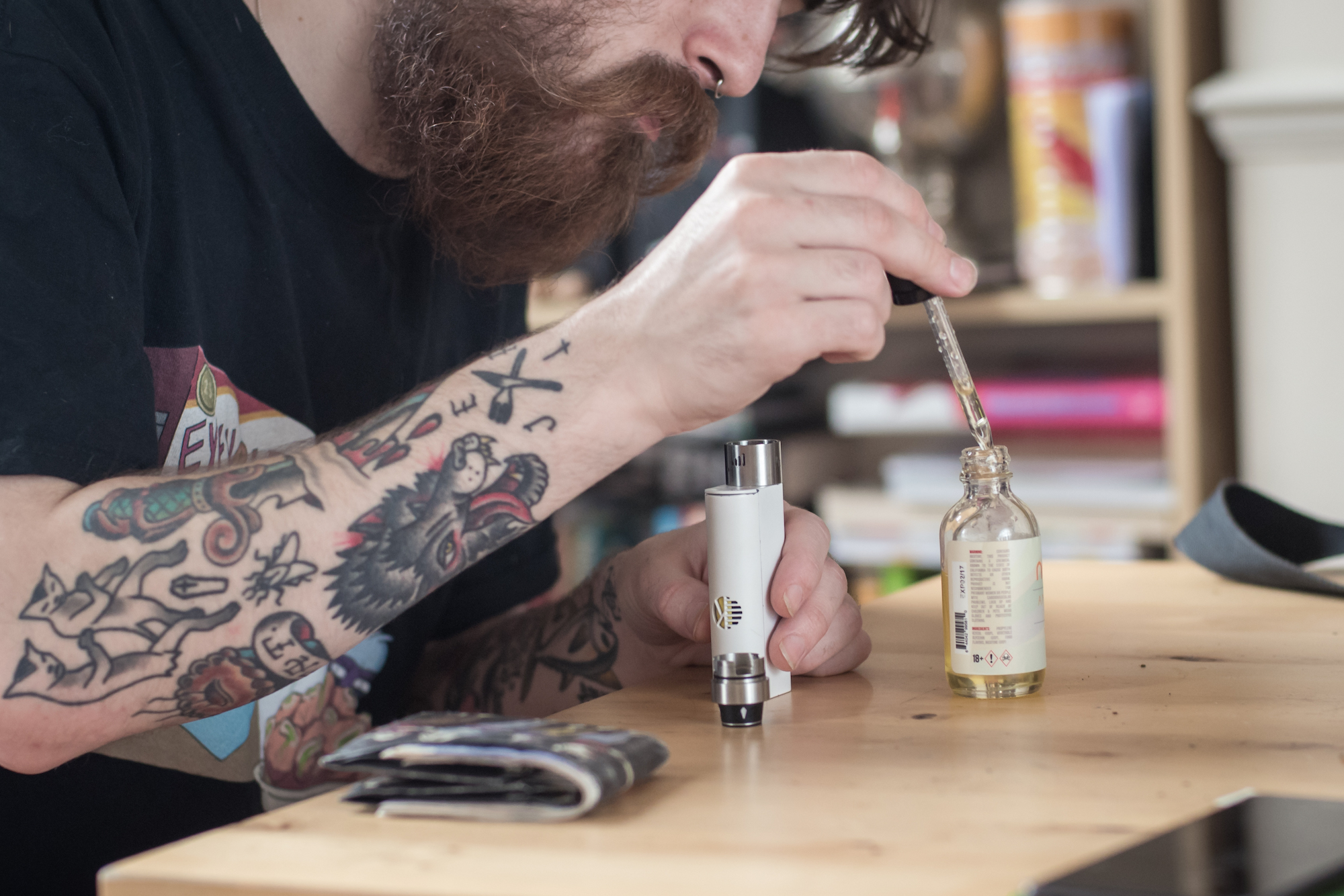- Vape juice has been tied to a mysterious crop of hundreds of lung illnesses this summer across the US.
- Multiple people have been hospitalized, and some have gone into medically-induced comas.
- At least one person in Illinois died after vaping, and another death is now under investigation in Oregon.
- Lung and e-cigarette experts say that part of the problem may be that oil from vape juices is getting into people’s lungs. Nicotine is also a concern, but it doesn’t help explain why some cannabinoid products have been linked to lung illnesses.
- Visit Insider’s homepage for more stories.
There’s something dangerous going on in the lungs of hundreds of vapers, and their vape juice might be to blame.
At least 215 cases of serious vaping-related lung issues have been reported to the CDC this summer alone across 25 US states.
So far, the lung problems have led to several medically-induced comas, and at least one death was reported in Illinois in August. Another fatality is now being investigated in Oregon.
“We don’t yet know the exact cause of these illnesses – whether they’re caused by contaminants, ingredients in the liquid or something else, such as the device itself,” Dr. Ann Thomas, a public health physician with the Oregon Health Authority said Tuesday in a release.
No specific vaping brands have been called out, but many of the vaping illnesses have involved cannabinoid liquids like THC.
Experts aren't sure yet exactly why this is happening, but they have a hunch that the illnesses may be nothing new. Because the vaping industry is largely unregulated, there are hundreds of different chemicals in vape liquids on the market, making it impossible for people to know whether the ones they're using are safe.
"We haven't been able to analyze e-liquid from these people, so we don't know what's in them," Professor Robert Tarran, who studies vaping at the University of North Carolina Marisco Lung Institute, told Insider.
Tarran says despite all the variation in what vapers inhale, there are two common ingredients in e-cigarettes: nicotine (dosed in varying concentrations), and propylene glycol or vegetable glycerin.
"That kind of narrows it down," he said.
Nicotine isn't always in cannabis-derived e-liquids, suggesting that vegetable oils and other liquid solvents - which are used in all kinds of vape pens, whether there is nicotine inside them or not - could be playing a major role in the lung illnesses.
Pneumonia cases associated with vaping have been reported since 2012
The FDA has received at least 80 vape samples from this recent outbreak for analyzing, but Tarran has been studying the effects of vaping on people's lungs for about five years now. His early results don't look good.
"I think there's an emerging consensus that the immune cells of the lung are a little bit upset by vaping," he said.
Professor Thomas Eissenberg at the Virginia Commonwealth University Center for the Study of Tobacco Products agrees that the vegetable oils found in many vape juices could be the major cause for concern. He points to at least seven different case studies published over the past decade, which all suggest that vape oil could be hurting people's lungs.
One is a 2018 BMJ case report of a 34-year-old British woman who'd been vaping for three years when she developed lipoid pneumonia and respiratory failure, while another from 2012 details how a 42 year old woman was seen multiple times and prescribed "several courses of antibiotics" before doctors finally told her to stop using e-cigarettes. (Only then did her symptoms improve.)
"Vegetable glycerin is derived from vegetable oil, and to the extent that the derivation process is not complete, vegetable oil could be getting into the liquid," Eissenberg told Insider. "If that's the case, we may be seeing not the last cluster of lipoid pneumonia, but rather the first."
If oil gets into people's lungs, where the body only expects to encounter air and oxygen, it can prompt inflammation, mounting a defensive immune response that leads to pneumonia.
"It makes me wonder whether, if we pulled a hundred electronic cigarette users off the streets and got some of their lung fluid, how many of them would have lipids in their macrophages?" Eissenberg said. "They're not experiencing symptoms, but they have the underlying cause."
Tarran also worries the oily lung problems may be larger than what's been documented this summer by the CDC and FDA. But he cautions that there could be other reasons for the pneumonia cases, including "rogue chemicals" or nicotine.

"I suspect ... it's been happening all along and people are just starting to notice it," he said. "You just kind of realize, as vaping continues to grow in popularity, how little we know."
Tarran's most recent study of vapers, published last month in the American Journal of Respiratory and Critical Care Medicine, suggests that vaping may be nearly as harmful as smoking, when it comes to overall lung health and long-term lung disease risk.
"People who vape, who've never smoked, they're part of a whole new kind of social experiment," he said. "Do they really want to be the guinea pigs?"

